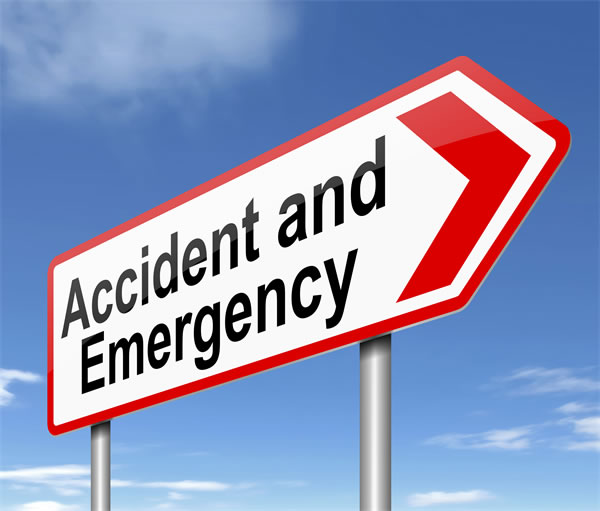
Whenever an unexpected illness or injury occurs, a decision is required: where to receive a medical evaluation and treatment? Many times your private physician’s office may be able to accommodate an urgent medical problem on the same day; but if not, residents and visitors of Holland and Zeeland are fortunate to have a choice of either emergency care or urgent care. Then, the question quickly becomes: where should I go? How early or late are they open? What is the expected wait time? Will my insurance cover the visit?
Hours vs. Minutes
There are important differences between the emergency department and urgent care. In short, if you feel that your signs or symptoms may represent a serious limb or life threatening condition, such as a heart attack, stroke, major wound or orthopedic emergency, then you would be directed to the emergency department. On the other hand, if you believe that your condition is NOT life or limb threatening, such as a cold or flu, minor rash, minor wound or simple bone injury, you would be directed to urgent care − if they are open at that time. The emergency department operates 24 hours a day, 365 days per year. Urgent care operates daily with set scheduled hours at two convenient locations, but is not open 24/7. That being said, it is estimated that many patients (conservatively, 50 percent or more) who go to emergency instead of urgent care do NOT have serious medical conditions, and could be served in urgent care instead. Another way of deciding where to go is whether or not your condition could feasibly be seen within several HOURS versus needing to be seen in MINUTES, where time is critical to save a life.
Choosing the Better Option
There are several reasons why urgent care may be the better option instead of the emergency department. First, the emergency department is designed, equipped and staffed with a higher (and therefore more expensive) level of capability. Charges for emergency care reflect this advanced capability. So, being seen for a minor complaint, such as a sore throat or simple bruise, will cost you more out of pocket compared to the lower charges at urgent care.
Secondly, if persons with minor complaints go to the emergency department for their care, the care in emergency slows down because of sheer volume demands placed on it, not to mention that it may prevent more timely and critical care for patients who have more serious conditions.
Finally, the American health care system is facing serious financial challenges and where you choose to go for care has a direct impact upon the financial health of the overall system. More and more we are seeing that medical insurance companies, including Medicare and Medicaid, are reluctant, or refusing to pay for emergency care − instead of taking care of a minor complaint at your physician’s office or urgent care where cost is lower.
In summary, both the emergency department and our hospital based urgent care are required to see anyone who presents with a medical complaint and perform a screening exam. No one is refused care! However, where you choose to go for care may have a direct impact upon how long you wait for that care and how much it may cost you directly. Indirectly, as tax payers we all help pay for everyone’s medical care in our current health care economy.
When it comes to deciding where to go for MINOR medical conditions, first consider contacting your primary care physician’s office. If they are unable to accommodate your need within a reasonable time period, you have the option of choosing either urgent care when open, or the emergency department.
At Holland Hospital we are fully committed to offering convenient, expert health care for your unanticipated medical needs. We hope that this information helps you in “choosing wisely” where to go in your moment of medical need.